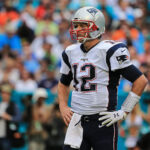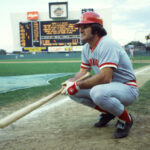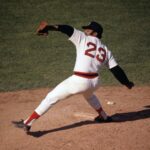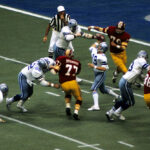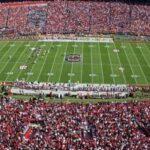Brett Who? Aaron Rodgers and the Green Bay Packers Reach Super Bowl XLV
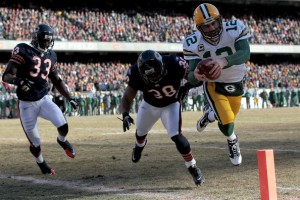
Aaron Rodgers didn't have his best game against the Bears, but he was able to lead Green Bay back to the Super Bowl for the first time since 1998.
Three years after making the controversial decision to cut ties with future Hall of Fame quarterback Brett Favre and put the future of the Green Bay Packers in the hands of unproven quarterback Aaron Rodgers, the choice has been justified. After defeating the Chicago Bears 21-14 in the NFC Championship Game, Green Bay will be making the fifth Super Bowl appearance in team history and first in 13 years.
Though their performance against the Bears wasn’t as dominating as a week ago against the Atlanta Falcons, Rodgers and the Packers did what they needed to do to overcome a pesky, but overmatched opponent.
Rodgers started out hot as he drove the Packers down the field on their first possession and capped the drive with a touchdown run.
However, for the remainder of the day Rodgers and the Packers kept tentative control of the game, but were never able to completely put the Bears away.
The Packers scored early in the second quarter to take a 14-0 lead that stood at halftime.
Early in the second half, Rodgers drove the Packers methodically down the field looking to put the game away, but an uncharacteristic interception kept the Bears in the game.
Things looked good for the Packers when starting Chicago quarterback Jay Cutler injured a knee and backup Todd Collins was ineffective during the third quarter.
Surprisingly, third string quarterback Caleb Hanie, a third year pro from Colorado State with 14 career pass attempts, entered the game late in the third quarter and started to change the momentum of the game.
He led the Bears to their first touchdown of the game early in the fourth quarter and the Bears defense then quickly stopped the Packers to give Hanie another chance.
However, Chicago’s next possession wasn’t as successful as Hanie threw a screen pass that was intercepted by lineman B.J. Raji and returned for a touchdown.
Conventional wisdom following that back-breaking turnover was that the Bears and their young quarterback were done.
However, Hanie didn’t flinch and it took him less than a minute and a half to lead the Bears back down the field and to their second touchdown of the contest.
Rodgers and the Packers were unable to run out the clock and Chicago had a chance to tie the game in the final minutes. However, a late pass was intercepted to seal the victory for Green Bay.
The victory brings an expected conclusion to an unexpected season for the Packers. Picked by many to reach the Super Bowl, the Packers needed victories in their final two regular season games to simply limp into the playoffs as the number six seed in the NFC.
However, even with a number of their best players out with injuries, the Packers proved during the playoffs that they have as much talent as any team in the NFL.
Winning all three games on the road, the Packers never trailed against the Eagles and Bears and only briefly against the Falcons.
Generally considered to be just a notch below Brady, Manning and Brees on the list of best quarterbacks in the NFL, Rodgers may have moved into the conversation following his playoff performance.
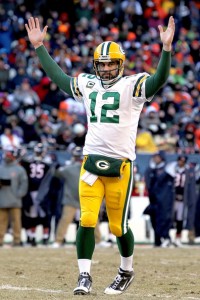
Rodgers is now one win away from becoming the third quarterback to win a Super Bowl with the Packers.
His effort against the Falcons will go down as one of the best playoff performances of all-time as he completed 31 of 36 passes for 366 yards and three touchdowns. He also ran for a score in the 48-21 win over the top seed.
The return of the Packers to the Super Bowl for the first time since losing Super Bowl XXXII to the Broncos in January of 1998 is in many ways a vindication for general manager Ted Thompson.
Though it was clear from the beginning that Rodgers was a future star, his talent didn’t immediately translate into victories on the field for the Packers.
After having reached the NFC Championship Game in their final season with Brett Favre under center, the Packers struggled in their first two years with Rodgers. The Green Bay defense was disappointing in 2008 as the team went 6-10. The following season the Packers went 11-5, but lost to the Cardinals 51-45 in their opening playoff game.
This year the Packers lost six regular season games by a total of 20 points, including twice in overtime. They also lost several starters to injury, but somehow managed to win their last two games and sneak into the playoffs.
Now, after reaching the Super Bowl, Rodgers and the Packers can now forever move past the Favre era and enjoy their next generation of success.
